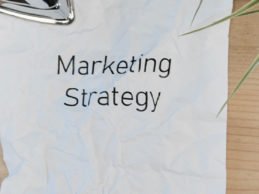
With a few exceptions, chances are you didn't start a business because you love finances and accounting. Well, here's some tough love: too bad. You still need to know your numbers. You shouldn't be the one managing them, but you should know enough to know if the person you do have managing them is screwing you over. That being said, while I nerd out on numbers, I'm no financial wizard. Here are my financial tips for starting a small business.
14 Tips on Small Business Finances
-
- Hire someone to manage this for you. If I really wanted to get to the point, that's all I'd write on this point, but that wouldn't be super helpful. You will get what you pay for, so be prepared for that. Hire a trusted accountant and, preferably, a CPA who can not only manage your monthly reconciliation and bookkeeping but can also help you with tax planning, quarterly and annual taxes.
- Consult an accountant and attorney for your business tax classification. Most small businesses would elect something like a Limited Liability Company (LLC) as their operating business entity and an S Corp as their tax classification. This might make sense if you're 100% owner of your business and you don't' want to be taxed twice on your income. There are a lot of other options here, but again, consult with an attorney and accountant to confirm what you want to elect as you get set up!
- Submit your quarterly taxes. Yup, as a small business, you'll have quarterly tax payments due. I'm not sure if there are exceptions to this rule, but assume you're not an exception. You can submit these online but don't forget to mark down the 15th of the month - the first month of every quarter.
- Account for taxes. Don't forget that you will want to factor taxes into your revenue. Whatever profit you wind up with, plan for 25% of it to be set aside for taxes, just to be safe. That being said, you may want to find strategic ways to maximize your expenses to minimize your net profit that you're taxed on.
- Invest in tax planning. You may not need this right away, but it doesn't hurt to know how you can maximize your money! A few tips for you: check out the Augusta Rule (you can rent out your house for 14 days and not be taxed on that income), massages (if doctor-ordered), your home office, mileage from your car, travel, computers, 401k company match contributions, profit sharing 401k, and so much more. Here's a fun list of things to consider, but here's more from our buddies at the IRS.
- Determine cash or accrual accounting. I'd recommend accrual accounting (but I'm no accountant). The reason I'd recommend this is that most financial institutions request your numbers to approve you for a loan or line of credit and they require accrual-based accounting financial reports. So if you start with cash-based accounting (like I did), you'll have to redo all of your numbers to get approved for any financing. And then there's also a good chance things will get messed up in the process (again, speaking from experience). So if you can set yourself up for success from the beginning, go for it.
- Cashflow is king. It's illegal to not pay your team and if you don't know what your cashflow is month over month, you might run into tricky situations. It's one thing to bill your clients and it's another for them to pay. If you have $15k you're waiting to land in your bank account, your current account balance is $5k and you have $10k of payroll and contractor fees due tomorrow, you're in trouble. Get ahead of it by managing your cash flow appropriately.
- Create financial backup cushions. Manage your business to the numbers, know your cash flow, and make smart business decisions. But even if you do everything right, you might have a client late in making a payment or an unexpected expense pops up and you don't have that extra $10k laying around. Try to get approved for a line of credit. You might have a tough time doing this prior to a full two years in business (I know I did), but it's a huge relief knowing that a late payment isn't going to crash your company. The great thing about a line of credit is that you don't pay anything unless you use it. So you're in full control. A loan begins to accrue interest on the entire lump sum amount. A huge shout out to Ixonia Bank for being such an incredible banking partner. Seriously they are the very best.
- Open business banking accounts. Do NOT mix your business accounting with your personal accounts. This is a red flag to the IRS and I'm sure there are a number of other reasons, but for that one alone, don't do it. Open accounts for your business checking/savings and do not mix these funds with your personal. Some people might even recommend having separate banks for business versus personal. Whatever you do, just make sure the money your business makes goes into your business account, not your personal. Pay yourself in more official ways so you don't find the IRS knocking on your door.
- Open a business credit card. Again, don't mix personal and business. This is helpful to streamline your operations and to get cashback or travel credits with your points! Don't miss out on the points! We usually get a few thousand dollars back each year!
- Keep your receipts. The IRS can audit any business of any size for up to six years. If you have faulty accounting practices or numbers that don't align, you may be subject to an audit. And if you don't have the receipts from your business-related expenses to prove you were being a responsible owner, you could run into a heap of trouble that you won't have time to deal with. Another reason to hire a professional accountant and CPA. I'd recommend a CPA as that's an additional layer of protection - but does not mean you're off the hook if something goes wrong.
- Use software to track everything. A lot of people love Quickbooks. Personally, it's not for me. When we first started, I used Wave and Bench as a workaround for hiring a CPA. We now use Xero and our CFO/CPA and COO manage this on a daily basis. It integrates into our HR platform (Gusto) as well as our CRM (Active Campaign). All kinds of fun stuff and automation, but more importantly, it's done right.
- Create a forecasting document. There may be a good technology to help with this but I still haven't found one. We use Google Sheets and have a bang-up forecasting document that allows us to see how revenue, COGS, and expenses all impact our profit and bottom line month over month. It's our holy grail. Everything we do gets documented in this document so we can make smart business decisions.
- Make the hard decisions. When it comes to being a responsible business owner, sometimes you have to make tough decisions. That might mean downsizing or letting someone go to make sure you're running your business with the right resources to stay in the black. Be human, but know that it's your responsibility to the rest of the team to make those tough decisions on their behalf. Knowing your numbers will make it easier to do exactly that. Don't forget that.
- Hire someone to manage this for you. If I really wanted to get to the point, that's all I'd write on this point, but that wouldn't be super helpful. You will get what you pay for, so be prepared for that. Hire a trusted accountant and, preferably, a CPA who can not only manage your monthly reconciliation and bookkeeping but can also help you with tax planning, quarterly and annual taxes.
Check out my other recommendations and lessons learned on business basics, branding/marketing, business development, and the operations and systems of starting a small business! And if you'd like a full step-by-step guide on how to start your online/virtual business, I documented all of those steps in great detail in my Work From Home Playbook, so check that out too!
At the end of the day, be honest with yourself. Don't try to learn how to be an accountant if you're not. Find someone you trust and you'll sleep more soundly at night.

Kiley Executive Coach & Consultant
Kiley Peters is a serial entrepreneur, national speaker, executive coach, and small business consultant. Having personally counseled over 100 small and medium-sized businesses on operations, business development, digital marketing, and consumer behavior analysis over the last 17 years Kiley is incredibly passionate about serving small business owners. She is the Founder and CEO of Brainchild Studios, a research and business strategy partner for small businesses and mid-market executives, and also created the Work From Home Playbook, a series of online courses guiding aspiring entrepreneurs through the steps of starting a virtual business. With these experiences in her back pocket, she understands the challenges and struggles small business owners encounter.
more posts by Kiley →Related posts
-
 Entrepreneurship, Resources
Entrepreneurship, Resources -
 Entrepreneurship, Resources
Entrepreneurship, Resources -
 Entrepreneurship, Resources
Entrepreneurship, Resources -
 Entrepreneurship, Resources
Entrepreneurship, Resources -
 Entrepreneurship, Leadership, Resources
Entrepreneurship, Leadership, Resources -
 Entrepreneurship
Entrepreneurship -
 Life, Entrepreneurship, Leadership
Life, Entrepreneurship, Leadership -
 Entrepreneurship, Leadership
Entrepreneurship, Leadership
